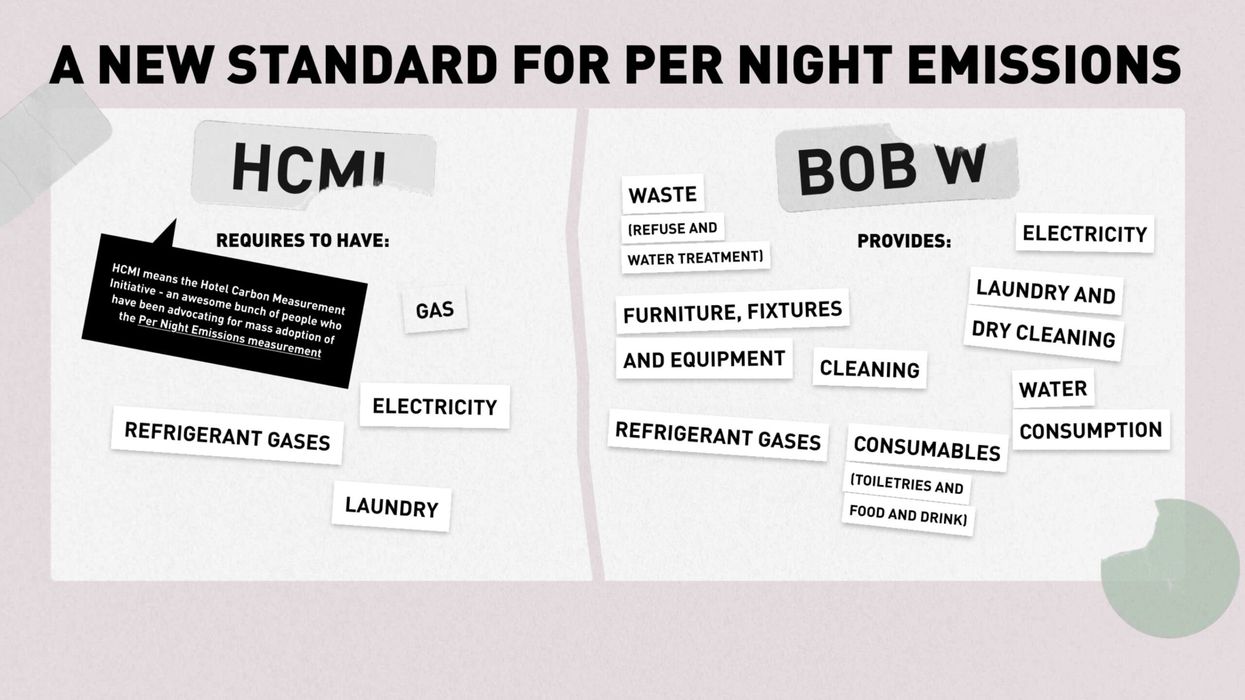Hotel Carbon Emissions Exposed: Why Sustainability Metrics Fall Short
HOTEL CARBON EMISSIONS are five times higher than current estimates from frameworks like the Hotel Carbon Measurement Initiative, according to findings by Bob W, a hospitality operator. The Finland-based company and UK-based environmental consultancy Furthr developed the "Lodging Emissions & Guest-night Impact Tracker," offering a broader view of the hotel sector's environmental impact.
The average carbon footprint at Bob W properties was 419 percent higher than the HCMI estimate after applying LEGIT, mainly due to supplier-contributed indirect emissions, the company said in a statement.
“The disparity between our new methodology and others raises critical questions about the effectiveness of current sustainability strategies within the sector,” said Niko Karstikko, Bob W’s co-founder and CEO. “Many operators may be falling short of addressing the full scope of their emissions, especially indirect sources.”
HCMI has helped operators take the first step in carbon measurement. However, Karstikko urged operators to adopt comprehensive measurement standards and increase transparency in sharing environmental performance with guests and the industry.
While HCMI includes factors like electricity, gas, refrigerant gases and laundry services, LEGIT considers the impact of construction materials, cleaning services, toiletries, food and drink, waste, water and furnishings, the statement said.
According to the company, LEGIT provided environmental impact metrics for each room type at every Bob W property, which is published on its booking website, guest app and sustainability reports, enabling transparency and helping guests make sustainable choices.
The new tool provides a deeper understanding of the hotel sector's environmental impact and raises questions about the effectiveness of current sustainability strategies.
Bob W became the first international climate-neutral hospitality provider in 2021 and aims to become a net-zero business by 2050, the statement said. The company offsets 100 percent of its operational emissions and prioritizes renewable energy.
The company’s latest Sustainability Report shows a carbon footprint of 4,489 tonnes of CO2e in 2023, a 90 percent increase from 2022. The company encourages other operators to adopt comprehensive standards, measure emissions accurately, and share data transparently, helping guests make informed decisions and build trust.
“Among the large hotel players, we’re a relatively small challenger brand,” Karstikko said. “If we can identify and measure our actual impact, so can others.”
It aims to refine the tool through open dialogue and collaboration, highlighting the role of collective effort in improving sustainability.
"We may not have all the answers, but we are committed to being the most honest operator in the industry,” Karstikko said. “We’re eager to hear feedback from others and collaborate to refine and enhance the methodology. Collaboration is key to making this initiative impactful for the entire industry."
AAHOA is working with the Energy & Environment Alliance to set unified sustainability standards, benchmarks, and metrics for the hotel sector, aligning with global standards.






